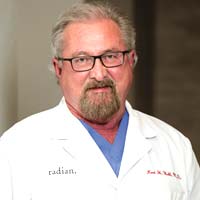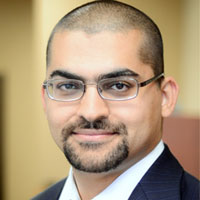Top Hair Transplant Clinic in India
Hair transplants are becoming a common procedure across the
globe. For anyone who has ever suffered from hair loss or baldness, they know
the stress and discomfort associated with just wanting to see the old you in
the mirror again. Hair transplants are offering a permanent solution to this
problem and as the techniques, results and price points improve, more people are
opting for hair transplants.
In India, a region of the world where hair is an important
attribute for men and women, hair transplants are especially on the rise.
One of the top hair transplant clinics in India, DermacliniX offers complete hair and skin
solutions at its center.
Catering to varying age groups, and people from across the
globe, the hair transplant center offers access to specially trained doctors
who have studied at All India Institute of Medical Sciences (AIIMS), Delhi and
procedures are done using high quality technology and sophisticated machines
and instruments.
Or particular note, the center is a pioneer in
bio-stimulated FUE and PRP-A cell therapy which is part of a very advanced hair
transplant procedure.
Dermaclinix is not just somewhere to go if you need a hair
transplant. Its also a great solution for all your skin and hair problems .The
center offers genuine advice and has high standards of care and ethical values
and makes use of advanced technologies for diagnosis and treatment of all
varieties of diseases involving the skin.
In addition to being one of the best hair transplant centers
in Asia, the center also offers laser hair removal services, anti-aging and
skin care treatments. These are all done by qualified doctors and professional
technicians - depending on the service being rendered. Staff members include
highly qualified laser operators, OT technicians, senior dermatologists and
some of the best cosmetic surgeons that are skilled at treating both men and
women.
In fact, considered one of the best dermatologist and hair
transplant surgeons in India, Dr.Kavish Chouhan, is responsible for running
DermacliniX as the Director.
In addition, Dr. Amrendra Kumar joins the staff as the
director and the co-founder of DermacliniX and has a renowned experience
in dermatology, venereology and leprology.
Finally, there is also Dr. Jyoti Gupta who offers
dermatology consultations and received a Gold Medalist in MD Dermatology at
Safdarjung Hospital.
Combined with the knowledge of these doctors and the desire
to continue advancing at hair transplants, DermacliniX continues to
succeed and become one of the best hair transplant destinations in India.
Hairfear - 5-13-2015
Frequently asked questions about hair transplant procedures
How much does a hair transplant cost?
Hair transplants can vary in price based off of the area in the world that you are interested in getting a hair transplant as well as the size of the area where you may need a hair transplant. Experienced doctors in the United States will often charge some of the highest prices for a hair transplant worldwide and this is why so many travelers make the move to other parts the world like Turkey, India, Thailand, Mexico...etc for their hair transplants.
Will a hair transplant hurt?
Although hair transplants may look like a particularly
unpleasant or painful experience is actually very little discomfort involved
with the surgery itself. Hair transplants are always done under an anesthetic so there's absolutely zero pain during the treatment itself. Many people actually relate the process as being very similar to going to the dentist for filling or root canal. Mild pain can persist over the course of postop treatment but he generally just resumes for a few days.
Who can deliver the best surgery?
It's usually best to consider working with surgeons who have and IAHRS certification or international alliance of hair restoration surgeons recognition. IAHRS can often deliver recommendations for the best surgeons in each particular area.
Is this scarring noticeable?
Any type of hair transplant will require the use of incisions throughout the scalp. There can also sometimes be a small scar from the donor area towards the back of the scalp. Asking to look at photos of the surgeon's previous work will help you to see roughly how bad the scarring could be. In most cases an experienced professional can limit the look of scarring and noticeable marks from the surgery.
How long does it take for the hair to grow?
In most cases hair growth will start within eight months and you can start to see a full effect from the hair transplant after a full year. The initial signs of growth can usually start between 3 to 4 months after the surgery.
Are the results permanent?
The hair follicles that are transplanted are generally the ones which are genetically resistant against the symptoms of baldness. As long as you receive hair loss treatment later in your life after the symptoms of balding have started to subside, you can have a better chance at permanent results.
While everyone know you've had surgery?
If you want to limit the chance that people may find out about your surgery it's important to give at least three weeks of healing as the surgical area will be affected and red just after surgery. After around a month of healing it can look far less noticeable. You could consider wearing a hat while time passes or opting for some extra time off if possible.
How long should I rest after surgery?
It's recommended to rest for at least a few days after surgery so that your body can recover. Trenton to over exert yourself and limit sexual activity, running in the gym for around 10 days after surgery.
Is it possible to lose more hair as a result of surgery?
There is always a chance of shock loss which happens when the hair is weak and miniaturizing after the surgery. As long as the surgeon is choosing the correct hair follicles and performing the surgery well it's possible to minimize the chance of this happening however.
Will I need another hair transplant?
The need for another transplant really depends on the individual. With a solid foundation surgery and working to potentially bolster results with drug therapy, you can improve the stability of the hair that was transplanted as well as prevent further loss. Getting a hair transplant early
on in your 20s or early on in life could lead to needing long-term transplants as hair loss can be progressive.







